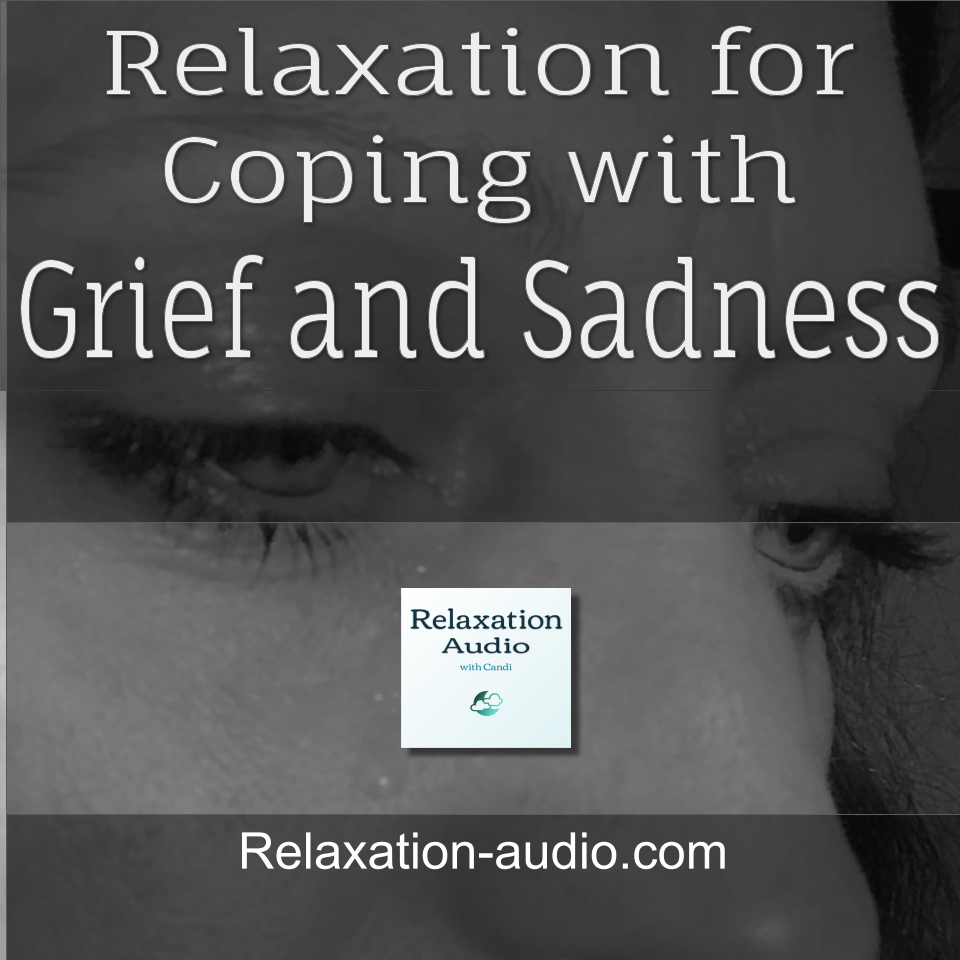This relaxation for coping with grief and sadness provides time to experience your feelings followed by relaxation and comfort.
Listen to the free relaxation download here.
Grief can cause a variety of symptoms such as sadness, memory problems, difficulty concentrating, sleep problems, changes in appetite, and more. This relaxation exercise provides time to experience your feelings followed by relaxation and comfort.

This relaxation for coping with grief and sadness is an experience of acknowledging where you are at, and of describing some of the many feelings that can be part of grief. Sometimes it can help just to hear a description of what you are going through, and to know that it is normal. It is okay to not be okay.
Find the Relaxation Audio with Candi podcast on iTunes, on Google Podcasts, on YouTube, at http://relaxation-audio.libsyn.com, or wherever you get podcasts.
Relaxation Script: Coping with Grief and Sadness
In a world where there are many expectations and demands, here is a safe place where you can be where you are. You do not have to force anything, and there are no expectations on you here.
When you are ready, find a quiet, private space where you can relax. Get into a comfortable position, and let’s begin by taking a moment to breathe. Now, follow along in the video or audio download to relax your muscles before we get into the dealing with grief portion of the exercise. First, use a physical relaxation technique such as passive progressive muscle relaxation. Then, proceed with the rest of the coping with grief and sadness relaxation script.
Acknowledging Grief and Honouring Your Loss
As you continue to breathe, let’s take a few moments to acknowledge your grief. As I talk through some of the feelings and experiences that can come with grief, I want you to know that this will be a limited amount of time. We will take some time for you to sit with your emotions, and notice them. We will focus on acknowledging your grief and honouring your loss. And then we will close this portion of the relaxation exercise, and focus on comfort and relief.
By acknowledging feelings on purpose, the emotions may feel less overwhelming. It can be empowering to choose to focus on your emotions rather than being blindsided by them. It can also be helpful to find ways to relax and become more comfortable as the waves of emotion pass.
Throughout this exercise, remember to breathe. If at any time you feel overwhelmed, you can reorient yourself by opening your eyes, wiggling your fingers and toes, and taking a few deep breaths. It is okay to mentally step away from the exercise as needed. Take care of yourself throughout this exercise. Be kind to yourself.
You might feel sad, angry, confused, or in disbelief. It is common to feel guilty, fatigued, or disinterested. You may feel a sense of dread, or sense of a terrible, gaping hole. You might feel nostalgia, longing, happiness, or even joy. It is possible to experience many emotions, even conflicting ones, all at the same time. You may feel numb, or detached, or unable to feel much of anything at all. Your emotions may change, leaving you unsure what is coming next.
The relaxation script continues in this video.







